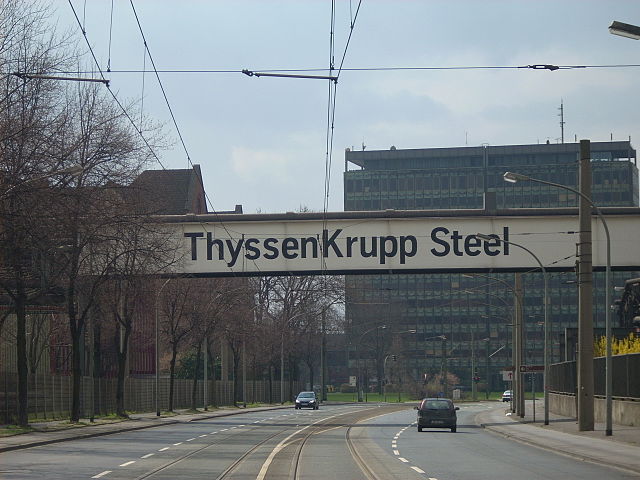In addition, the authorities launched an investigation in relation to the chairman of the German Economic Association of Steel Producers Hans Jürgen Kerkhoff, according to German newspaper Manager Magazin. Verification of the activities of high-quality steel producers in Germany were launched at the beginning of this year.
It is reported that at the beginning of last week the antimonopoly authority informed representatives of the Union of Steelworkers of the Federal Republic of Germany that two processes are being conducted with regard to the association. One more thing concerns one of the largest steel producers in Germany.
According to the German media, steelworkers are suspected of negotiating prices for large-grade sheet steel and sheet iron. It is not ruled out that the tests will also affect the largest in Europe steel producer ThyssenKrupp. A spokesman for the German concern said that he knew that the German Federal Antimonopoly Agency was "currently engaged in steelmaking."
"The Federal Office for Antimonopoly Policy has been conducting inspections against various enterprises and industrial associations of the German steel industry since autumn 2015. They are suspected, in particular, of collusion when setting the amount of surcharges for products such as high-quality steel, in particular for fused steel Thyssenkrupp Steel Europe was also informed about the preliminary results of this study. "
According to a representative of Thyssenkrupp, the antimonopoly authority is engaged in a large-scale inspection of metallurgists. It has already raised many questions about the work of industrial associations in Germany.
This summer, German carmakers VW, BMW, Audi and Porsche were accused in cartel collusion. About 200 employees working in 60 sectoral committees discussed development of vehicles, brakes, gasoline and diesel engines, couplings and transmissions, as well as exhaust gas purification systems. Volkswagen acknowledged possible anticompetitive behavior in a letter that it sent to the antitrust authorities on July 4.
source: manager-magazin.de
It is reported that at the beginning of last week the antimonopoly authority informed representatives of the Union of Steelworkers of the Federal Republic of Germany that two processes are being conducted with regard to the association. One more thing concerns one of the largest steel producers in Germany.
According to the German media, steelworkers are suspected of negotiating prices for large-grade sheet steel and sheet iron. It is not ruled out that the tests will also affect the largest in Europe steel producer ThyssenKrupp. A spokesman for the German concern said that he knew that the German Federal Antimonopoly Agency was "currently engaged in steelmaking."
"The Federal Office for Antimonopoly Policy has been conducting inspections against various enterprises and industrial associations of the German steel industry since autumn 2015. They are suspected, in particular, of collusion when setting the amount of surcharges for products such as high-quality steel, in particular for fused steel Thyssenkrupp Steel Europe was also informed about the preliminary results of this study. "
According to a representative of Thyssenkrupp, the antimonopoly authority is engaged in a large-scale inspection of metallurgists. It has already raised many questions about the work of industrial associations in Germany.
This summer, German carmakers VW, BMW, Audi and Porsche were accused in cartel collusion. About 200 employees working in 60 sectoral committees discussed development of vehicles, brakes, gasoline and diesel engines, couplings and transmissions, as well as exhaust gas purification systems. Volkswagen acknowledged possible anticompetitive behavior in a letter that it sent to the antitrust authorities on July 4.
source: manager-magazin.de





